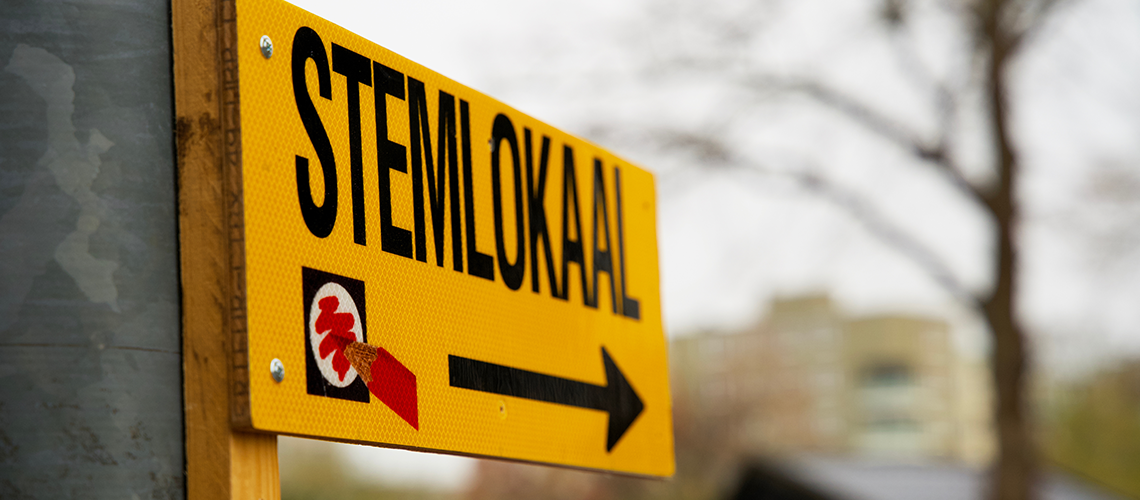Populism: Dutch election deadlock brings rule of law front and centre
Yola Verbruggen, IBA Multimedia JournalistThursday 15 February 2024

After years in opposition, Geert Wilders’ Party for Freedom became the Netherlands’ largest by winning 37 out of 150 seats in national elections at the end of 2023. However, under the Dutch electoral system, Wilders does not automatically become Prime Minister. In order to form a government, he must persuade other party leaders to enter a coalition with him – and these negotiations have stalled amidst serious concerns for his extreme views on issues such as immigration and media freedom, various of which are inimical with the rule of law.
Despite his party’s proposals to ban the Quran, close down mosques and shut the door to asylum seekers, Wilders has said he’d be ‘Prime Minister of all Dutch’. His statements aimed at the Moroccan community in the Netherlands have previously landed him in court, and in 2020 a Dutch appeals court upheld his earlier conviction for insulting Moroccans.
Wilders is the Netherlands’ longest serving member of parliament. Initially he was part of the ruling People’s Party for Freedom and Democracy (VVD), before he split off in 2006. His party – PVV – has also proposed cutting funding for public broadcasting, development aid and the war in Ukraine. The Netherlands Bar (NOvA) has said that some of Wilders’ proposals are in direct contradiction to the rule of law.
Thomas van Houwelingen-Boer is Young Lawyers’ Committee Liaison Officer on the IBA Immigration and Nationality Law Committee and a partner at Everaert Advocaten in the Netherlands. He was involved in the writing of the NOvA report. ‘Most of the PVV’s plans are legally untenable to such a degree that it makes me think that they’ll not get past the courts. The main concern in my view is the xenophobic message the election result sends to the Muslim community and other immigrant communities,’ he says.
To encourage others to work with him at the time of the election, Wilders said he’d set what he termed ‘unconstitutional measures’ aside and that his party is ‘not going to talk about mosques, Qurans and Islamic schools.’ Van Houwelingen-Boer explains that ‘Wilders says he’ll put those proposals that are unconstitutional “in the fridge”’, where ‘they’ll be stored […] to ensure they don’t go off.’ However, van Houwelingen-Boer adds that Wilders ‘won’t renounce’ such ideas.
The desire for change is not in itself a bad thing; it is important to be wary if the desire for change could undermine the principle of the rule of law
Martin Provazník
Vice Chair, Communications Group, IBA European Regional Forum
The Netherlands currently has a caretaker government, led by Prime Minister Mark Rutte of the VVD, who, after 13 years, is the country’s longest-serving leader. The formation of Rutte’s last government following the March 2021 election took 271 days.
Wilders wants the VVD to be a part of his coalition government, but their current leader, Dilan Yeşilgöz-Zegerius, has dismissed that possibility. She did, however, pledge to support a coalition between the PVV and newcomers the Farmer Citizen Movement and New Social Contract (NSC), which would give Wilders the support he needs for a majority in parliament.
The NSC, prior to the elections, had ruled out working together with Wilders because of the unconstitutionality of some of his ideas. Due to the PVV’s success, following the vote the NSC entered into talks with the ‘scout’ tasked with forming a government – with the rule of law being the first issue discussed. However, in early February those talks ended.
Some commentators are concerned about the consequences stemming from the willingness of various parties to consider working with Wilders. ‘Working with him normalises extremist ideas’, says Eva van Vugt, an assistant professor of constitutional law at Maastricht University. Many of Wilders’ statements and plans are ‘hard to reconcile with the rule of law’, she adds.
Constitutional amendments in the Netherlands require a majority of two-thirds in both houses, yet fundamental rights can be changed by a mere parliamentary majority. ‘It has been said that the constitution and our institutions will prevent him from implementing his more controversial ideas, but many fundamental constitutional rules are unwritten and the constitution leaves a lot to the discretion of the legislature,’ says van Vugt.
A coalition of other parties that together could reach the majority threshold – without the PVV – isn’t currently being explored. ‘Other parties can exclude the PVV, but because of Wilders’ major win some parties have entered talks with them despite their earlier objections. PVV might be the largest party with 25 per cent of the votes, but 75 per cent of the people did not vote for Wilders,’ says van Vugt.
Paul van Sasse van IJsselt is a professor of law and religion at Groningen University in the Netherlands. ‘There is definitely reason to worry, as we wait to see whether other parties are willing to compromise on the rule of law. I am concerned about the longer term and the further normalisation of an anti-rule of law party at the centre of political power. Experiences from the past and in neighbouring countries demonstrate how, gradually, we could reach a point of no return,’ he says.
Martin Provazník, Vice Chair of the Communications Group of the IBA European Regional Forum, remarks on the rise of forces often described as ‘populist’ in a number of countries. ‘The desire for change is not in itself a bad thing; it is important to be wary if the desire for change could undermine the principle of the rule of law,’ he says. ‘It is precisely for this purpose that the institutions that safeguard the rule of law need to be on their guard and to be attentive to any change in the laws that is proposed.’
Image caption: Sign showing the way to the polling station for the elections in the Netherlands. René Notenbomer/AdobeStock.com
